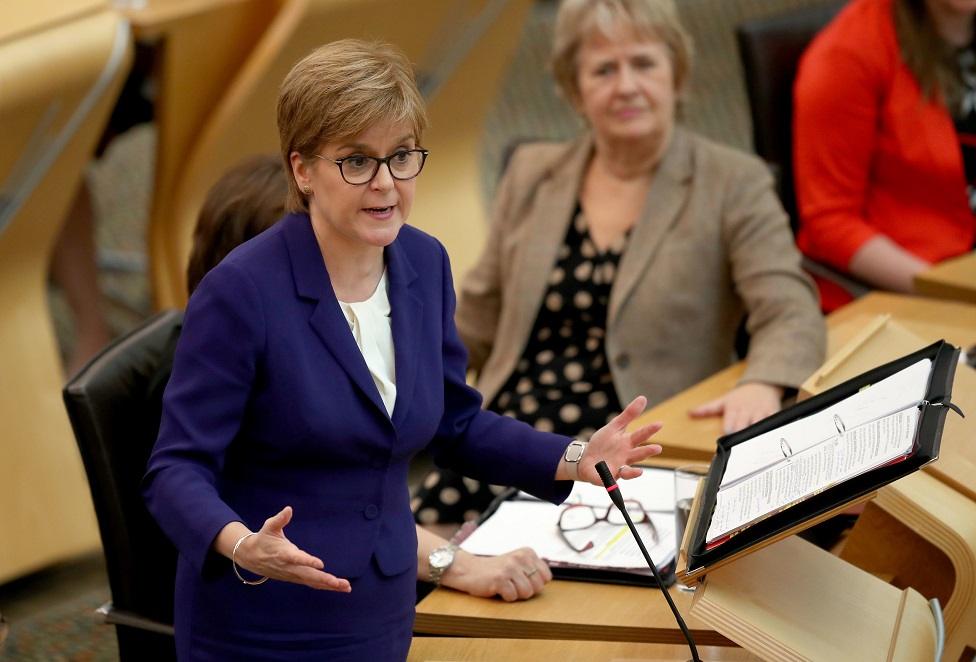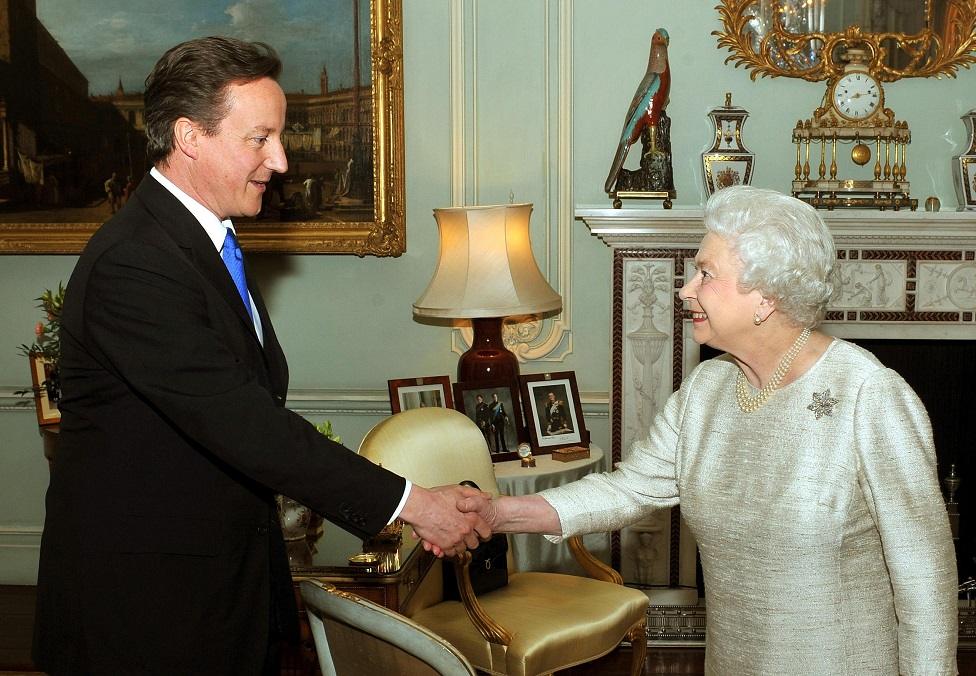Cameron, the Queen (and independence) at FMQs
- Published

Nicola Sturgeon was nearing the end of an exhaustive (no, not exhausting, exhaustive) answer. Building to a conclusion, she noted: "Finally on independence…"
Cue ironic cheers from the Tories and others. It is not common, in truth, for Ms Sturgeon's opponents to laud the FM. But this seemed like a gift.
To her credit, the first minister rallied swiftly and effectively. She paused. She smiled. She clarified. For the avoidance of doubt, she reserved the right to return - more than once - to the topic of independence.
To be fair, she had been bowled a single transferable question by Patrick Harvie of the Greens. Climate change plus indyref2.
As it happened: First Minister's QuestionsDavid Cameron asked whether the Queen could "raise an eyebrow" ahead of the Scottish independence referendum
On the environment, he urged her to abandon fossil fuels in whatever form. She responded, not for the first time, that said fuel must play a part in Scotland's power grid for the foreseeable future, while renewable alternatives were developed.
And indyref2? Mr Harvie confidently predicted that a rerun plebiscite on Scotland's future was just around the corner.
He followed that with a plea that the next ballot might be run without intervention from the head of state.
A reference, of course, to the disclosure by David Cameron that he dropped a hint in the regal ear to the effect that Her Majesty might raise a royal eyebrow to express disquiet with independence.
As it turned out at the time, the Queen did sound a note of caution. A few days before polling in 2014, she advised a well-wisher outside Crathie Kirk that she hoped the Scots thought carefully about the choice before them.
At the time, the palace issued a statement which vigorously denied that these words breached the convention that the monarch should remain impartial in constitutional and political matters.

David Cameron asked whether the Queen could "raise an eyebrow" ahead of the Scottish independence referendum
So today's disclosure from Mr Cameron, in a BBC interview, provoked renewed controversy. But, intriguingly, Nicola Sturgeon seemed somewhat disinclined to join in the row.
Her predecessor, Alex Salmond, has accused Mr Cameron of acting out of political desperation, external and in a manner which played fast and loose with the constitution.
I'm quite sure Nicola Sturgeon endorses those sentiments. Indeed, she suggested that Mr Cameron had been in a panic.
But, like Mr Salmond, she declines to extend the criticism to the monarchy. Indeed, Mr Salmond questions whether Mr Cameron was influential at all.
And so Ms Sturgeon played down the significance of the disclosure, suggesting it told us little of novelty. If it said anything, she added, it was about David Cameron, not the palace.
Why so circumspect? Two reasons. The SNP would retain the Crown in an independent Scotland and discern no votes in criticising the Queen.
Secondly, Nicola Sturgeon wants to look forward, with a positive approach, rather than refighting old battles.
